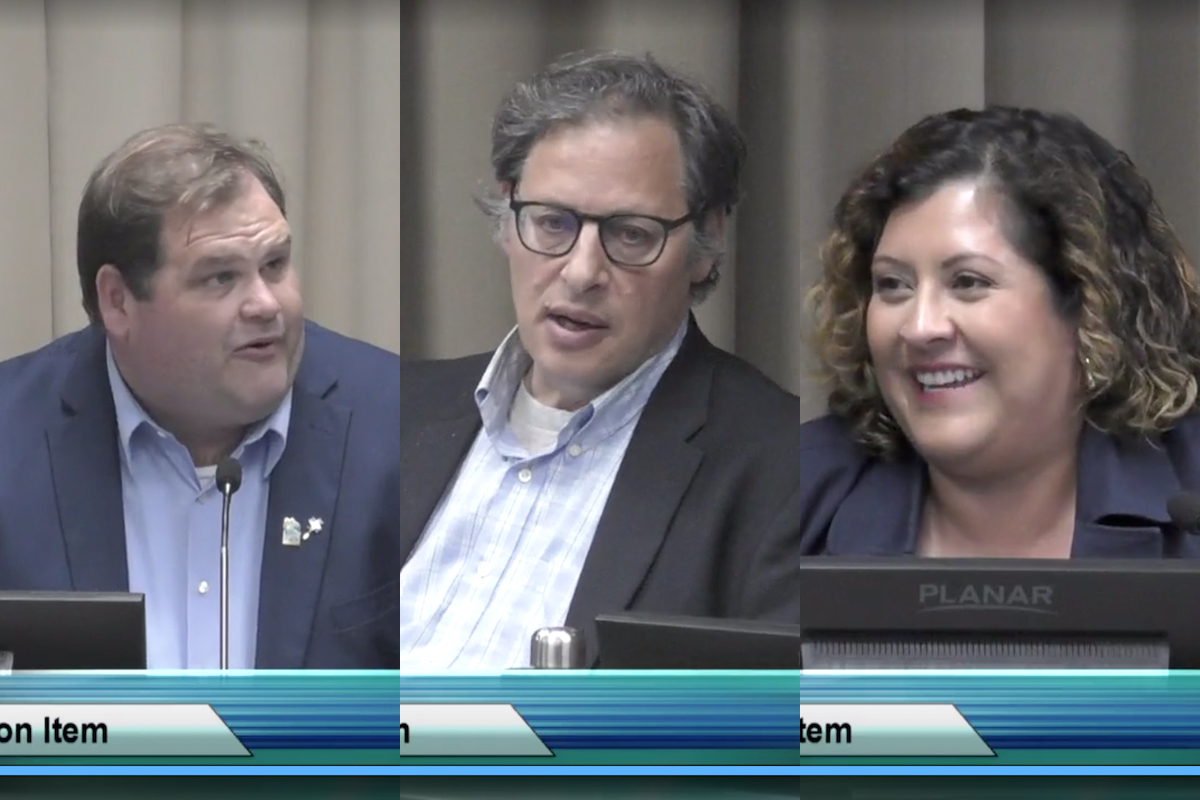Goleta Debates Where Measure B Tax Money Should Be Spent
Council Divided Between Specific Dollars for Specific Programs or General Fund

The discussion at the Goleta City Council Tuesday night got slightly hot under the collar over the spending of tax money the city hasn’t yet received. Measure B was passed in 2022 by 64 percent of the electorate, and collection of the tax begins in 2024. What concerned members of the council was sticking to the ballot language that the penny-on-the-dollar sales tax would go toward roads, the Goleta Community Center, public safety, creeks, and beaches.
As a general sales tax, city staff explained, as the clock ticked down to 10:30 p.m., it was not a special tax and could not be committed to specific funds or programs.
But, said Councilmember Stuart Kasdin, the council presented the measure to voters as a reflection of the city’s priorities. “If we throw it into the regular annual budget process, then it’s sort of lost,” he said. “It’s so easy to game these things. I’ve done it!” said Kasdin, who was with the White House Office of Management and Budget during the Clinton years, and parts of both Bush presidencies.
The city hadn’t committed to exact amounts or exact percentages for certain programs during the campaign, Councilmember James Kyriaco countered. “It’s not a true statement to say … we’re breaking faith with voters if we don’t execute a priority spending plan as if it were a specific tax.”
The four general spending categories the council had discussed for the tax in June 2022, prior to the vote in November, were:
• Public health, safety, and infrastructure, which included pavement, capital improvements, the maintenance backlog, a homelessness strategic plan, fire, and sheriff
• Parks, recreation, creeks, and sustainability, which included the Creek and Watershed Master Plan, a Bicycle and Pedestrian Master Plan, the parks and open space maintenance backlog, the butterfly preserve, and a climate action plan, among other things
• Jobs, economy, and housing, which included an affordable housing program, economic development strategic plan, childcare programs, and Old Town visioning and improvements
• Other vital services and capital maintenance projects, which included the library, the community center, other facilities, and Lake Los Carneros
And during the discussions, the council had recommended some percentages for the various programs to receive:
• Public health, etc.: 51.7 percent
• Parks, etc.: 20 percent
• Jobs, etc.: 18.3 percent
• Other services, etc.: 10 percent
These were the items the public knew they were taxing themselves for, Kasdin argued, and it felt dishonest to him for the council to now be less specific. When the half-cent tax had first been proposed, back in 2020, Kasdin and former councilmember Roger Aceves voted it down, arguing that it hit people in the pocketbook during a pandemic, when they could least afford it.
On Tuesday, all the councilmembers agreed that it mattered that they spend the funds as they had indicated in the ballot language, with Councilmember Luz Reyes-Martín asserting that the council would be the oversight committee on where the Measure B funds went.
The conversation settled down after City Attorney Megan Garibaldi said again that Measure B was a general tax, not a special tax, and that any binding pre-commitment of the money was “troubling” before the budget process. “This is the intention of this council,” she said, “and it is not binding on future councils … it’s important that this is a policy discussion, and not a legally binding discussion.”
Wherever the council directed he put the money, said City Manager Robert Nisbet, “if that’s what you direct to me, that’s exactly what I’m going to bring forward in the recommended budget.” As well, Nisbet stated the budget document, which is due to come to the council in future weeks, would have a message from his office that shows just where the Measure B funds are going.
Correction: Measure B was for a one cent on the dollar sales tax, not a half cent.



